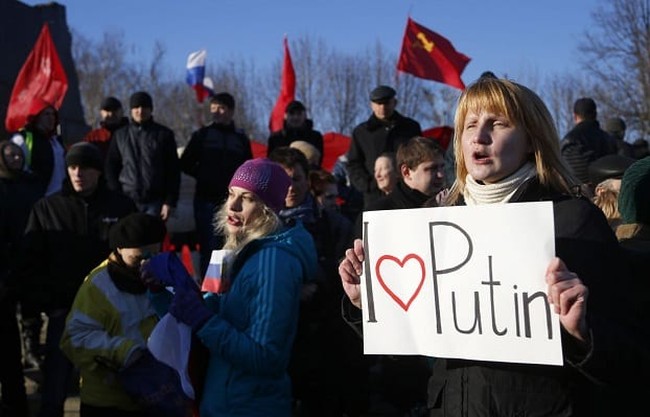 The smart set running what passes for diplomacy in US and the EU have released a new array of sanctions against Russia. These are a belated response to Russia’s fomenting a bloody civil war in Ukraine but in reality were only brought on by Russian armed, Russian trained, and Russian led ‘separatists’ shooting down a Malaysia Air passenger jet.
The smart set running what passes for diplomacy in US and the EU have released a new array of sanctions against Russia. These are a belated response to Russia’s fomenting a bloody civil war in Ukraine but in reality were only brought on by Russian armed, Russian trained, and Russian led ‘separatists’ shooting down a Malaysia Air passenger jet.
In a press conference at the White House moments ago, President Obama announced new sanctions against Russia for its role in continuing to undermine Ukraine’s sovereignty.
The US sanctions will target three sectors: energy, finance and arms. Obama vowed that these sanctions will have “bigger bite” than those that have come before.
Meanwhile in Europe, twenty-eight European national ambassadors met this morning in Brussels to discuss the harshest sanctions yet aimed at the Kremlin.
The European Union—Russia’s largest trading partner—approved a package of sanctions that target Russia’s state-owned banks, and will restrict sales to Russia of arms, some kinds of technology and some equipment used by the oil industry.
European diplomats also drew up a list of people who will face individual sanctions, including at least three close associates of President Putin.
This is what the stripey suit types in Foggy Bottom and Brussels refer to as “targeted or smart sanctions.”
Comprehensive economic sanctions have an indiscriminate impact on a country and can entail severe negative humanitarian consequences for the civilian population and third countries. In a series of conferences, representatives from the United Nations, government and the private sector held a dialogue aimed at identifying methods of applying sanctions in a more targeted and efficient manner.
…
Targeted sanctions are intended to be directed at individuals, companies and organizations, or restrict trade with key commodities. The following instruments can be applied:
- Financial sanctions (freezing of funds and other financial assets, ban on transactions, investment restrictions)
- Trade restrictions on particular goods (e.g. arms, diamonds, oil, lumber) or services
- Travel restrictions
- Diplomatic constraints
- Cultural and sports restrictions
- Air traffic restrictions
These new sanctions, of course, are a joke. They are premised on the idea that the US and EU are sole purveyors of certain classes of equipment, that there will be no leakage in the sanctions by third parties, and that Putin’s inner circle of kleptocrats can be coerced into turning on the guy who can send them to Siberia or have them and their families disappeared. What makes it more of a joke is that Obama has not acted to abrogate US Export-Import Bank loans to Russia (despite the rather sheer window dressing of forbidding new deals) and France, being populated by the French, is pressing ahead with delivery of four Mistral-class amphibious assault ships to the Russian Navy. Some jobs will be lost in the West, but who cares, right, because these sanctions are smart. They New York Times, while engaging in a lot of wishful thinking in an article headlined As Sanctions Pile Up, Russians’ Alarm Grows Over Putin’s Tactics, observes quite the opposite:
Domestically, grumbling over the creeping isolationism has grown louder. Roughly 50 percent of the economy is state-run, and the loyalty of those who direct such companies to Mr. Putin remains absolute. But the rest are changing.
…
The general sense here was that the West was again piling on Russia without evidence — that it was a political issue.
“In my opinion, we face a critical situation today,” Lev Gudkov, the director of the Levada Center, an independent polling organization, told a weekend seminar audience. “But our society does not realize it against a backdrop of patriotic and chauvinistic euphoria.”
That euphoria was rooted in the relatively bloodless, seemingly costless annexation of Crimea in March. The public expected that the rest of the crisis in Ukraine would be resolved with similar ease.
“The situation began changing dramatically after the crash of the Boeing,” Mr. Gudkov said. “According to our research, reaction inside the country was quite weak, but the Western European public has drastically changed its attitude towards Russia.”
Indeed, poll results released Tuesday by the Levada Center showed the Russian public barely concerned about sanctions. More than 60 percent of respondents thought they would have little or no impact on them. Mr. Putin remains hugely popular.
In short, Putin is popular, the average Russian won’t feel the impact of sanctions, the people who are targeted by the sanctions remain loyal to Putin, Russia continues to kill Ukrainians, there is no movement in the investigation of Malayasia Air MH-17 and Obama and the EU can appear to be doing something. This, in Washington and Brussels is what is know as a win-win.
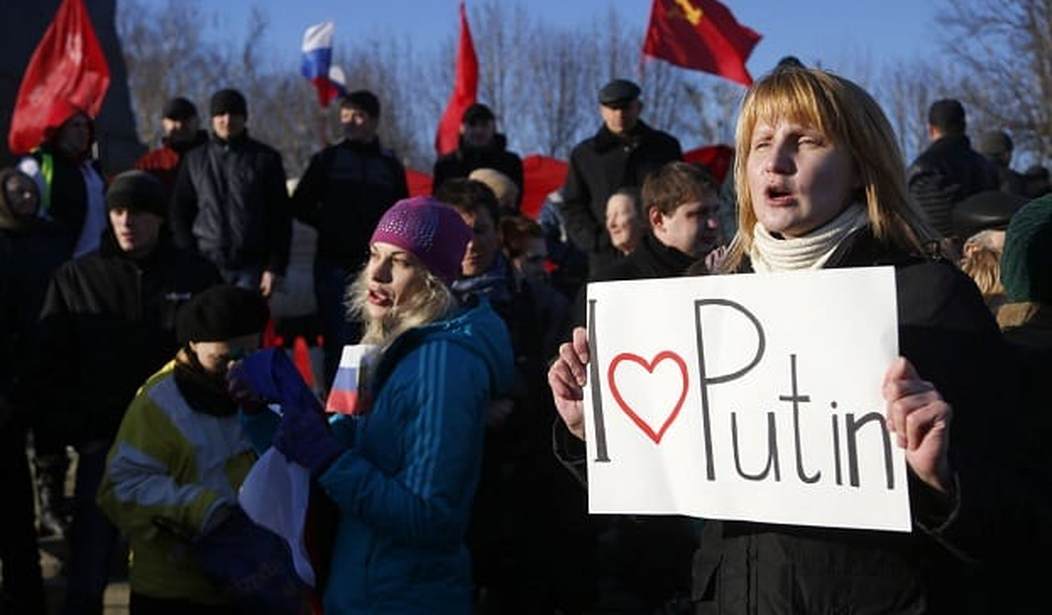
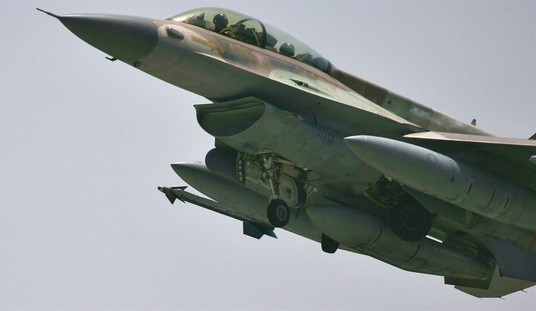
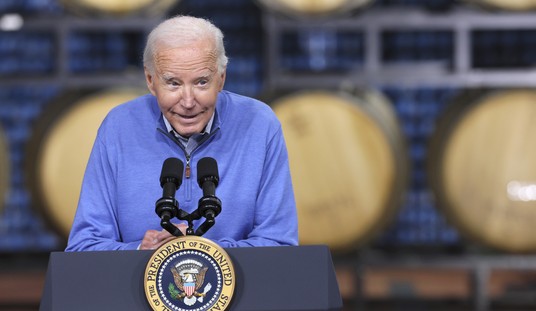

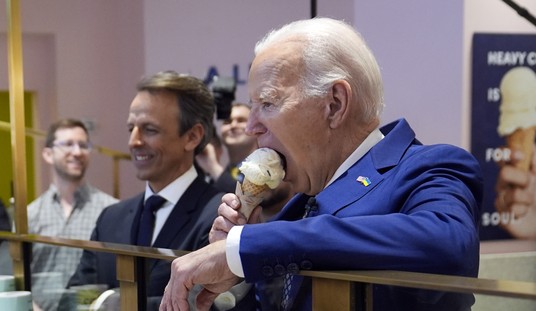

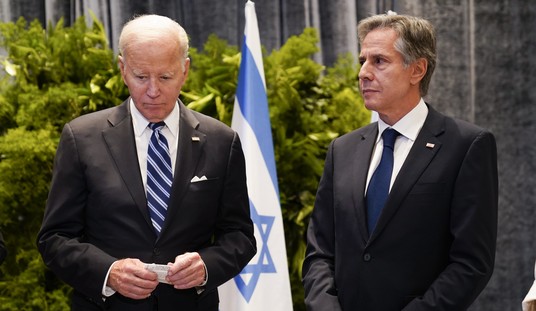



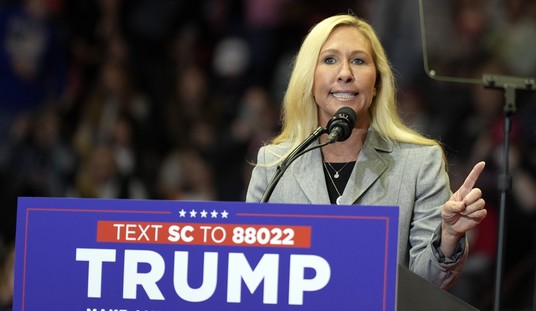


Join the conversation as a VIP Member